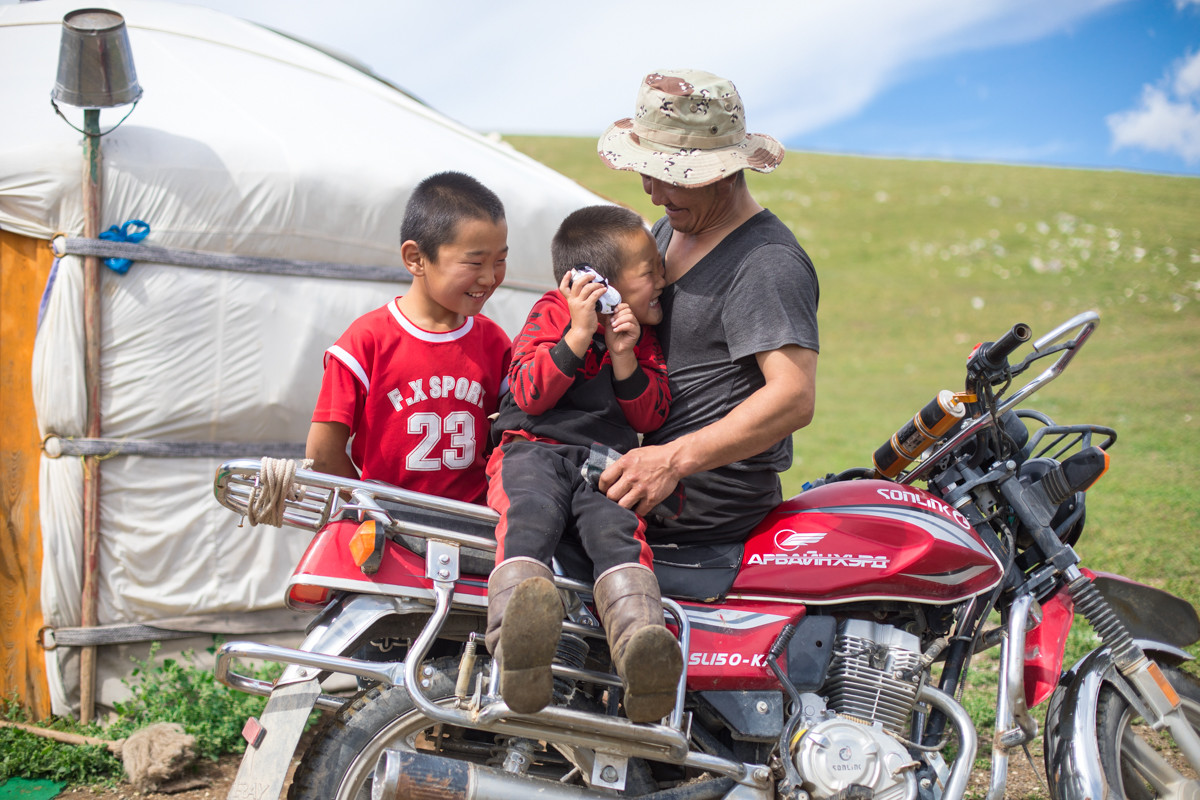Impact evaluation study on early action cash transfers: 381 households received cash assistance during 2021 dzud
Published: Oct 18, 2021 Reading time: 4 minutes Share: Share an articlePress Release

ULAANBAATAR, Mongolia: Large parts of the rural population in Mongolia rely on livestock herding for their livelihood. In recent years, pastoralist households have been hit hard by extremely cold and snowy winter events (dzud in Mongolian) that caused high livestock mortality. In January 2021, the National Agency for Meteorology and Environmental Monitoring of Mongolia predicted more than 60 percent of the country to be at risk of facing dzud during the 2020/21 winter. The Covid-19 pandemic had additional socio-economic impacts on rural households and made it more difficult for herders to prepare for harsh winter conditions.
With the financial support from the German Federal Foreign Office, People in Need (PIN) Mongolia INGO, the Potsdam Institute for Climate Impact Research (PIK), and the National Statistics Office of Mongolia (NSO) joined forces to implement a new research project to understand how pastoralist households can be best supported to cope with dzud winters.
At the core of the project is the distribution of humanitarian aid by PIN to 381 pastoralist households living in the three western provinces of Zavkhan, Uvs, and Govi-Altai, where the dzud risk was particularly high. Randomly selected households received unconditional cash grants of 150-250 Euro in March 2021. The research project will examine if the cash transfers enabled adaptive behavior and helped households to avoid livestock losses and other damages to their well-being. The methodologically rigorous impact evaluation will build on a high-quality household panel survey implemented by PIK and NSO in western Mongolia. As a result of this impact evaluation, scientifically robust evidence on the impacts of unconditional early action cash transfers for the well-being of households will be generated and disseminated. The project will also develop a decision-making tool that allows stakeholders to systematically decide on the targeting of specific groups and the value of transfers in future early action cash programming.
“We look forward to the results of this research project. There is an urgent need for policy instruments that help rural herders cope with such weather disasters. Early action cash transfers seem to have a lot of potential, but little empirical evidence exists on whether such transfers are indeed helpful to households and what amount should be transferred to have an impact for households. I am confident that the project will provide new and much-needed answers to those questions.” Her Excellency Ariunzaya Ayush, the Minister of Labor and Social Protection
“The NSO is pleased to be part of this exciting international project consortium. We have been collaborating with the Potsdam Institute for Climate Impact Research for many years to jointly implement the Coping with Shocks in Mongolia Household Panel Survey. The NSO team had interviewed a representative sample of households in western Mongolia four times since 2012. We will collect more data by surveying the same households a fifth time from June 2021 onwards. The panel survey asks households about their herd size, livestock losses due to dzud, and a wide range of living conditions. PIK researchers will use the panel survey to analyze if the humanitarian intervention helped herders to avoid livestock losses and other damages. The project underlines the importance of high-quality household data to inform policy.” Mr. Amarbal, Director, Population and Social Statistics Department National Statistics Office of Mongolia
About People in Need (PIN): PIN is an INGO that launched programming in Mongolia in 2009, when it provided emergency assistance to herders affected by severe winter conditions (dzud). Aside from providing humanitarian assistance, more than 20 projects have been successfully implemented as of today to support sustainable livelihoods, health, education, and the environment.
About Potsdam Institute for Climate Impact Research (PIK): PIK is a publically funded research institute based in Germany founded in 1992, and is a member of the Leibniz Association. PIK is one of the world's leading organizations studying the effects of global climate change and making new discoveries and solutions for a sustainable future. At PIK, the research project is carried out by the FutureLab Inequality, Human Well-Being and Development.
For media inquiries, contact Ms Nomin Munkhjargal, Partnerships Manager, People In Need: nomin.munkhjargal@peopleinneed.cz



